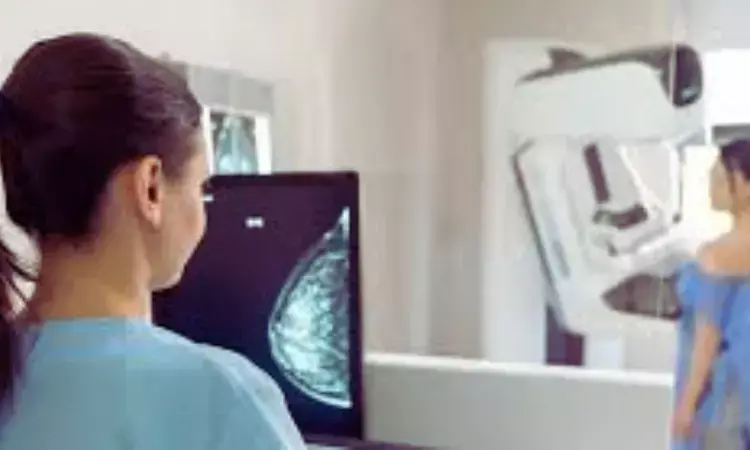- Home
- Medical news & Guidelines
- Anesthesiology
- Cardiology and CTVS
- Critical Care
- Dentistry
- Dermatology
- Diabetes and Endocrinology
- ENT
- Gastroenterology
- Medicine
- Nephrology
- Neurology
- Obstretics-Gynaecology
- Oncology
- Ophthalmology
- Orthopaedics
- Pediatrics-Neonatology
- Psychiatry
- Pulmonology
- Radiology
- Surgery
- Urology
- Laboratory Medicine
- Diet
- Nursing
- Paramedical
- Physiotherapy
- Health news
- Fact Check
- Bone Health Fact Check
- Brain Health Fact Check
- Cancer Related Fact Check
- Child Care Fact Check
- Dental and oral health fact check
- Diabetes and metabolic health fact check
- Diet and Nutrition Fact Check
- Eye and ENT Care Fact Check
- Fitness fact check
- Gut health fact check
- Heart health fact check
- Kidney health fact check
- Medical education fact check
- Men's health fact check
- Respiratory fact check
- Skin and hair care fact check
- Vaccine and Immunization fact check
- Women's health fact check
- AYUSH
- State News
- Andaman and Nicobar Islands
- Andhra Pradesh
- Arunachal Pradesh
- Assam
- Bihar
- Chandigarh
- Chattisgarh
- Dadra and Nagar Haveli
- Daman and Diu
- Delhi
- Goa
- Gujarat
- Haryana
- Himachal Pradesh
- Jammu & Kashmir
- Jharkhand
- Karnataka
- Kerala
- Ladakh
- Lakshadweep
- Madhya Pradesh
- Maharashtra
- Manipur
- Meghalaya
- Mizoram
- Nagaland
- Odisha
- Puducherry
- Punjab
- Rajasthan
- Sikkim
- Tamil Nadu
- Telangana
- Tripura
- Uttar Pradesh
- Uttrakhand
- West Bengal
- Medical Education
- Industry
Breast cancer death in women can be reduced by regular screening mammograms

USA: A recent study reports a significant reduction in breast cancer mortality when women regularly attend screening mammograms. The study findings were presented at the annual meeting of the Radiological Society of North America (RSNA).
"Women who attended all their invited screening mammograms had a survivability rate of over 80%. Women who didn’t participate in any screenings had a survival rate that ranged from 59.1% to 77.6%," the study stated.
Early detection of breast cancer, before symptoms are present, is key to survivability. According to the American Cancer Society, women between the ages of 45 and 54 should get mammograms every year. Women who are 55 years and older can switch to every other year or continue with annual mammograms. Skipping just one scheduled mammogram could result in a more advanced breast cancer diagnosis, significantly impacting a patient’s chance of survival.
“The purpose of mammography is to detect breast cancer during the few years it can be seen on a mammogram, but before symptoms are apparent,” said study author Robert A. Smith, Ph.D., senior vice president and director of the American Cancer Society Center for Cancer Screening in Atlanta, Georgia. “If a woman unknowingly has breast cancer and misses or postpones her mammogram during this time when she has no symptoms, but her breast cancer is growing and perhaps spreading, then the window for early detection will be lost.”
Even though regular mammograms are an important factor in early breast cancer detection, there are still many barriers that restrict women from receiving this preventative care, including access and work or family obligations.
“It is challenging to keep track of your schedule, and in the U.S., many women do not receive reminders. Further, for all of us, the obligations of work and family compete with our scheduled health care,” Dr. Smith said.
Dr. Smith and colleagues sought to identify the exact impact of missing even one mammogram.
The researchers obtained women’s screening history from oncology centers throughout Sweden for a period from 1992 to 2016. A total of 36,079 breast cancer patients were included in the study.
Using data from the Swedish Cause of Death Register, the researchers identified 4,564 breast cancer deaths among the patients included in the study.
The researchers then tracked all of the women’s participation in five or fewer most recent invitations for breast cancer screening prior to cancer diagnosis.
Women who attended all their invited screening mammograms had a survivability rate of over 80%. Women who didn’t participate in any screenings had a survival rate that ranged from 59.1% to 77.6%.
Women who attended all five screening mammograms saw a 72% reduction in the risk of dying from breast cancer compared to women who didn’t participate in any screening mammograms. Even after conservative adjustment for potential self-selection factors, there was a highly significant 66% reduction in the risk of breast cancer death.
“Women who attended all five previous mammography examinations prior to a diagnosis of breast cancer were nearly three times less likely to die from breast cancer compared with women who had not attended any examinations, and each additional examination attended among the five previous examinations conferred an additive protective effect against dying from breast cancer,” Dr. Smith said.
The researchers stressed that imaging facilities should prioritize getting patients in for screening at the earliest opportunity. This is especially important when women have to cancel their appointments. Facilities should reschedule these screening mammograms for the next earliest available appointment.
“These findings show that as much as possible, adherence to regular mammography screening is the very best insurance a woman has against being diagnosed with an advanced breast cancer that could be life-threatening,” Dr. Smith said.
Reference:
Regular screening mammograms significantly reduce breast cancer deaths, Radiological Society of North America, Meeting: 109th Scientific Assembly and Annual Meeting of the Radiological Society of North America.
Dr Kamal Kant Kohli-MBBS, DTCD- a chest specialist with more than 30 years of practice and a flair for writing clinical articles, Dr Kamal Kant Kohli joined Medical Dialogues as a Chief Editor of Medical News. Besides writing articles, as an editor, he proofreads and verifies all the medical content published on Medical Dialogues including those coming from journals, studies,medical conferences,guidelines etc. Email: drkohli@medicaldialogues.in. Contact no. 011-43720751


